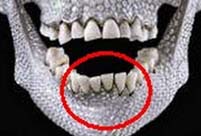 Deng Xiaoping: 'I have a clear conscience all my life'
Deng Xiaoping: 'I have a clear conscience all my life'
 Xi Jinping: 'The people are our strength'
Xi Jinping: 'The people are our strength'
 Amazing cliff diving in cold winter
Amazing cliff diving in cold winter
 Enjoy Sochi 2014 in slow motion
Enjoy Sochi 2014 in slow motion
 University student sentenced to death for poisoning roommate
University student sentenced to death for poisoning roommate
 Chinese lunar New Year celebrated in San Francisco
Chinese lunar New Year celebrated in San Francisco
 Taiwan Lantern Festival 2014
Taiwan Lantern Festival 2014
 Haiyang Yangge: make up
Haiyang Yangge: make up
 China's top 10 richest cities
China's top 10 richest cities
SHANGHAI, Feb. 26 -- China's central bank will remove interest rate ceilings on smaller foreign-currency deposits in the Shanghai Free Trade Zone (FTZ) from March 1, the latest in a spate of long-anticipated financial reforms.
The relaxation applies to deposits of less than 3 million U.S. dollars owned by businesses and agencies registered in the zone or by individuals who have worked in the zone for more than one year, said the Shanghai headquarters of the People's Bank of China (PBOC) on Wednesday.
Currently, regulatory caps apply to one-year or other shorter-term deposits in U.S. dollars, Japanese yen, euros and Hong Kong dollars. Deposits worth more than 3 million U.S. dollars are not subject to ceilings.
The move marks the full liberalization of interest rates on foreign-currency deposits in the FTZ and could be promoted nationwide after experimentation, said officials and experts.
The reform will help to test the market and to gain experience, laying a firm foundation for the deepening of interest-rate liberalization nationwide, said Zhang Xin, deputy director of the PBoC's Shanghai headquarters.
Wang Xinhao, governor of the Shanghai branch of the Shanghai Pudong Development Bank, said the latest move came as the FTZ speeds up innovation in financial systems, which could be copied in other parts of the country.
The foreign-currency deposit rate liberalization is not expected to exert heavy pressure on the country's monetary controls and financial stability due to the little sum of smaller foreign-currency deposits, said economists.
There are risks of cross-border arbitrage as the deposit rates on major foreign currencies in China are higher than in their home countries due to easy credit.
Foreign-currency deposits in the zone totalled 4.8 billion U.S. dollars. Among this, only 1.2 billion U.S. dollars is in smaller deposits, official data showed.
"The interest rate liberalization in the zone is being pushed forward in a gradual manner, rather than being achieved in one go," said Zhu Jianfang, chief economist of Citic Securities. "The gradual approach is within market expectations."
The central bank is cautious as it seeks to contain risks, said Lian Ping, chief economist of the Bank of Communications.
"Possibly bearing in mind cross-border arbitrage risks, the cap on Renminbi deposits rates in the zone still has not been lifted," said Lian.
The local currency already has higher deposit rates and liberalization could push them higher, carrying the risk of encouraging more cross-border arbitrage by cheap foreign money.
Among other reforms, the central bank on Friday unveiled details of trans-border yuan regulations in the zone. Companies set up there can now borrow offshore yuan without previous restraints.
The Shanghai FTZ was launched last September when China is tackling challenges that have emerged from its upgrade to a more value-added and consumption-driven model. It is viewed as a test bed for China's drive of deepening market-oriented reforms and boosting economic vitality.
The FTZ is built to seek institutional arrangements that can be copied and rolled out nationwide, according to Jian Danian, deputy director of the FTZ's managing committee.
 Chinese Dream: the Chinese Spirit and the Chinese Way
Chinese Dream: the Chinese Spirit and the Chinese Way 51 bronze sacrificial utensils unearthed in Shaanxi
51 bronze sacrificial utensils unearthed in Shaanxi Most gorgeous female celebs in Chi-pao
Most gorgeous female celebs in Chi-pao Second round of test kicks off at Beijing Film Academy
Second round of test kicks off at Beijing Film Academy Ancient Qiang people had vertically grown teeth
Ancient Qiang people had vertically grown teeth Top 10 Chinese youth’s favorite seaside destinations
Top 10 Chinese youth’s favorite seaside destinations Traditional Tibetan clothing tailors
Traditional Tibetan clothing tailors In photos: Unveiling Taishan station
In photos: Unveiling Taishan station Beautiful moments of family reunion
Beautiful moments of family reunion Chinese warplanes C919 to appear at Singapore Airshow
Chinese warplanes C919 to appear at Singapore Airshow Ruins of Shang Dynasty's structure unearthed in Shaanxi
Ruins of Shang Dynasty's structure unearthed in Shaanxi  Intercity high speed train in operation
Intercity high speed train in operation Severe coldness freezes large parts of China
Severe coldness freezes large parts of China  Beautiful moments of Sochi
Beautiful moments of Sochi  It's not just performing this year
It's not just performing this yearDay|Week|Month